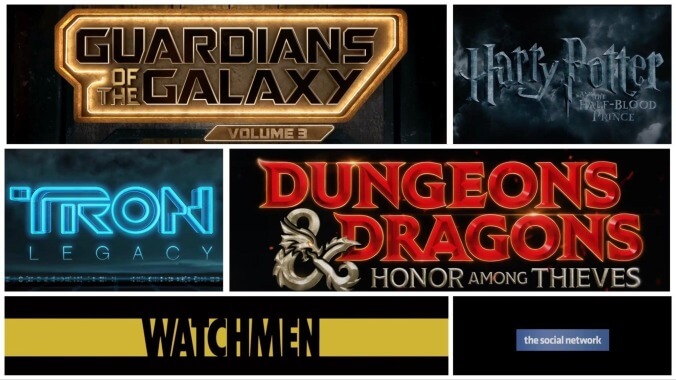How to make a great movie trailer
Top trailer editors reveal the tricks to avoiding spoilers, finding the story, dealing with nervous studios and putting their best footage forward

A film can have a big star, a visionary director, cutting-edge special effects, and a wildly fresh concept, but at the end of the day what it really takes to get butts in seats is a knockout trailer. And, much like those who make movies, those who make movie trailers are constantly seeking to raise the bar. “There’s always a push for how to do something different and new,” says Benj Thall, a director and veteran trailer editor who heads his own boutique agency, Evolver Creative, and works as a hired specialist for film studios and streamers. “There’s only so many ’80s pop songs we can trailer-ize,” he adds with a laugh.
Thall, whose work ranges from studio tentpoles like Harry Potter And The Half-Blood Prince, Tron: Legacy and Watchmen to documentaries and indie fare like Val, Whale Rider and Young Victoria, sees his task as taking a film’s raw ingredients and creating an arresting mini-narrative that reflects the movie’s dynamic essence. “The really good trailers present something in a brief moment that you’ve maybe never seen before, or just knock your socks off,” he notes. “I always start my trailer work by looking for a true, impactful moment in the film that sums up the emotional tone or the feel of the film,” he explains. “All good trailers have a bit of that indescribable feeling you get from watching that specific movie, whether that’s a quintessential line, a moment, a look between characters. I tend to try and build something around that.”
Ric Thomas, an editor at Buddha Jones, one of Hollywood’s foremost trailer houses, whose work includes a slew of Marvel campaigns, such as promos for Ant-Man & The Wasp: Quantumania, says there’s a constant search for innovation. “We’re always trying to avoid people feeling like they recognize tropes and cliches; so it’s ever-evolving,” says Thomas, who sifts through content with his colleagues to identify standout moments, then makes assemblies using elements of the finished films, dailies, and screenplays as a guide. “We try and work out the cleanest, most concise way of telling the story … You don’t want to overload people with information.”
Watch the clock
For decades, the running time for trailers has been largely capped at two minutes and 30 seconds, and even in the era of digital media Thall says trailers that stick to that familiar standard tend to be the most successful. “Two minutes to three minutes is the sweet spot.” says Thall. “If you get a three-minute trailer, you’re gonna feel like ‘This is long.’ So there’s this built in limit.” In that brief window of time, trailer editors try to pack in every possible selling point in the most organic yet economic way possible.
“When you have these big action movies like Guardians Of The Galaxy,” Thall adds, “every two-second shot has to be loaded for the viewer; loaded with information, loaded with special effects, loaded with emotional content. Every frame is important. Also the shots that you don’t include are important; what you’re not saying, what you’re leaving for the viewer to infer. A lot of the power of editing is what you don’t put in, leaving a question for the viewer.”
 Keep scrolling for more great stories.
Keep scrolling for more great stories.
